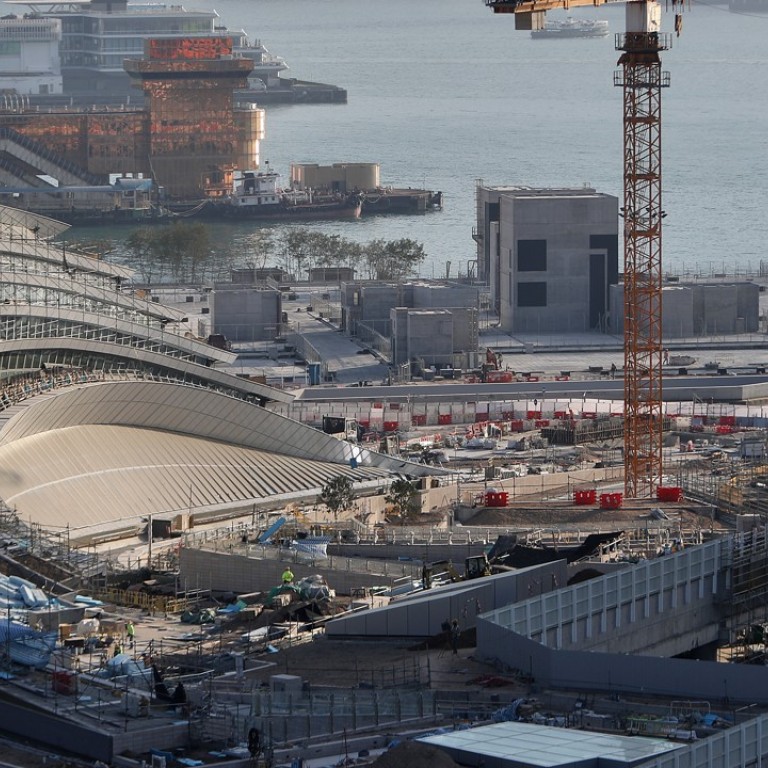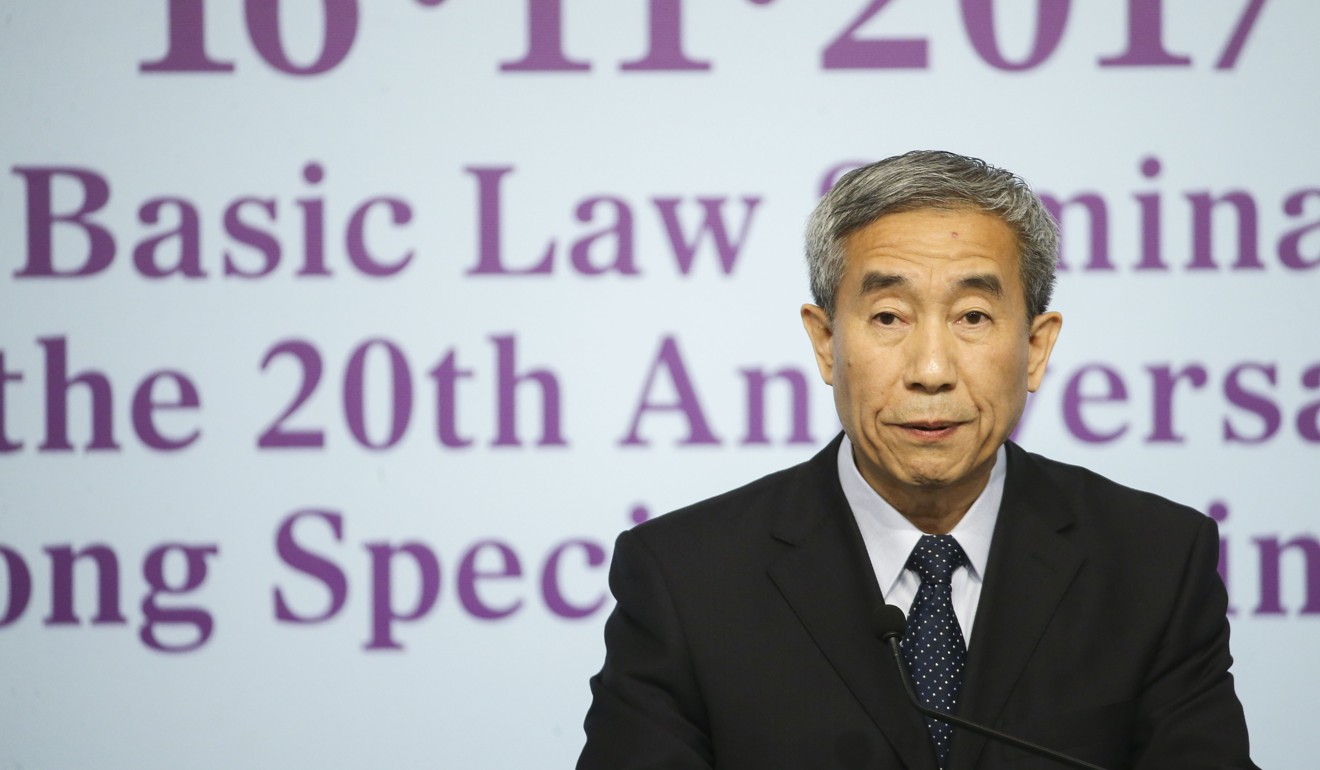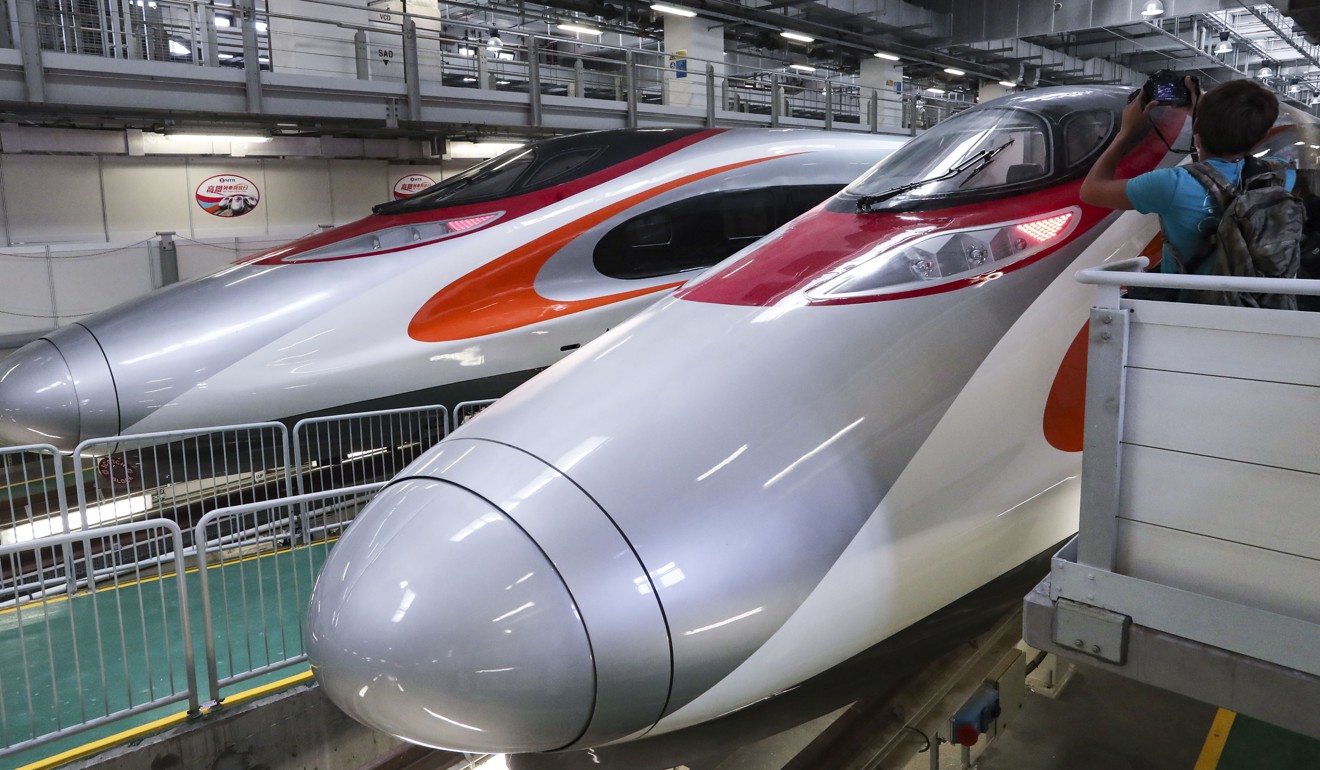
Top Basic Law official to address legality of joint checkpoint plan in Beijing on Wednesday
Li Fei promises to answer all questions regarding the checkpoint planned for the West Kowloon terminus of the Guangzhou-Shenzhen-Hong Kong rail link
A top Beijing expert on Hong Kong’s mini-constitution is set to field questions on Wednesday afternoon at the capital’s Great Hall of the People on the legal justification for a controversial plan to give mainland Chinese authorities jurisdiction over part of the terminus of a high-speed rail that will link the city to Guangzhou.
Basic Law Committee chairman Li Fei plans to hold a press conference on the same day China’s top legislative body is expected to approve the so-called co-location plan, which would allow mainland officers to enforce national laws during immigration and customs operations in a designated zone leased to them at the West Kowloon terminus of the Guangzhou-Shenzhen-Hong Kong rail link.

The plan was one of four bills being scrutinised by the National People’s Congress Standing Committee (NPCSC) at its bi-monthly meeting that started on Friday in Beijing.
Let Hongkongers challenge joint checkpoint plan now before it’s too late, veteran lawyer argues
In a document tabled before the NPCSC by Zhang Xiaoming, Beijing’s top man on Hong Kong and Macau affairs, several parts of the Basic Law – including articles 118 and 119, which deal with economic considerations – were cited to prove that the Hong Kong government has sufficient power to implement the co-location arrangement, according to sources quoted by government radio station RTHK.
Articles 18 and 20 were not mentioned in the document, which was the transcript of Zhang’s briefing on the arrangement, made on the first day of meetings, the RTHK report said.
The contents of Zhang’s speech have not been disclosed in full to the public.
Hong Kong Secretary for Justice Rimsky Yuen Kwok-keung had previously cited Article 20, which authorises the NPCSC to grant the Hong Kong government powers not yet enshrined in its mini-constitution. But Yuen’s suggestion was disputed by pan-democrats and a Beijing academic.
Critics have often pointed to Article 18, which states that national laws shall not be applied to Hong Kong except for those listed in Annex III of the Basic Law. But hours after Zhang’s briefing, Elsie Leung Oi-sie, vice-chairwoman of the Basic Law Committee, told reporters that the interpretation of Article 18 was “irrelevant” as national laws would only apply to a specific group of people in a specific place – in this case, users of the high-speed rail in the West Kowloon terminus.
Article 118 allows for Hong Kong to provide an economic and legal environment for encouraging investments, technological progress and the development of new industries. Article 119 says Hong Kong shall formulate policies to promote various trades such as transport and tourism.
The time and venue of Wednesday’s press conference were revealed in a notice issued by the press bureau under the NPCSC’s general office on Saturday and published on the official website of the congress on Sunday.
Starting from 4pm on Wednesday in the Great Hall of the People, Li, who is also the deputy secretary general of the Standing Committee, will explain the bills along with other officials, subject to their passage.

Li promised to comprehensively answer all questions at Wednesday’s news conference but did not disclose other details.
In Hong Kong, legal experts running in an election for the next governing body of Hong Kong’s Bar Association urged Beijing to provide the public an “acceptable legal basis” as it approves the arrangement.
“In a society with rule of law, the public will be disappointed if the authorities fail to clearly explain the legal basis for a project that has been going on for eight years,” University of Hong Kong law professor Johannes Chan Man-mun told reporters on Monday.
Hong Kong tourism chiefs give backing to high-speed rail joint checkpoint plan
Chan, the university’s former law dean, is a member of the line-up led by prominent human rights lawyer Philip Dykes SC contesting the Bar Association’s election set for January 18.
Chan said the association, which is considered one of the most authoritative voices of legal professionals, had “indispensable responsibilities” to speak up on issues concerning rule of law and the controversies of the co-location arrangement.

